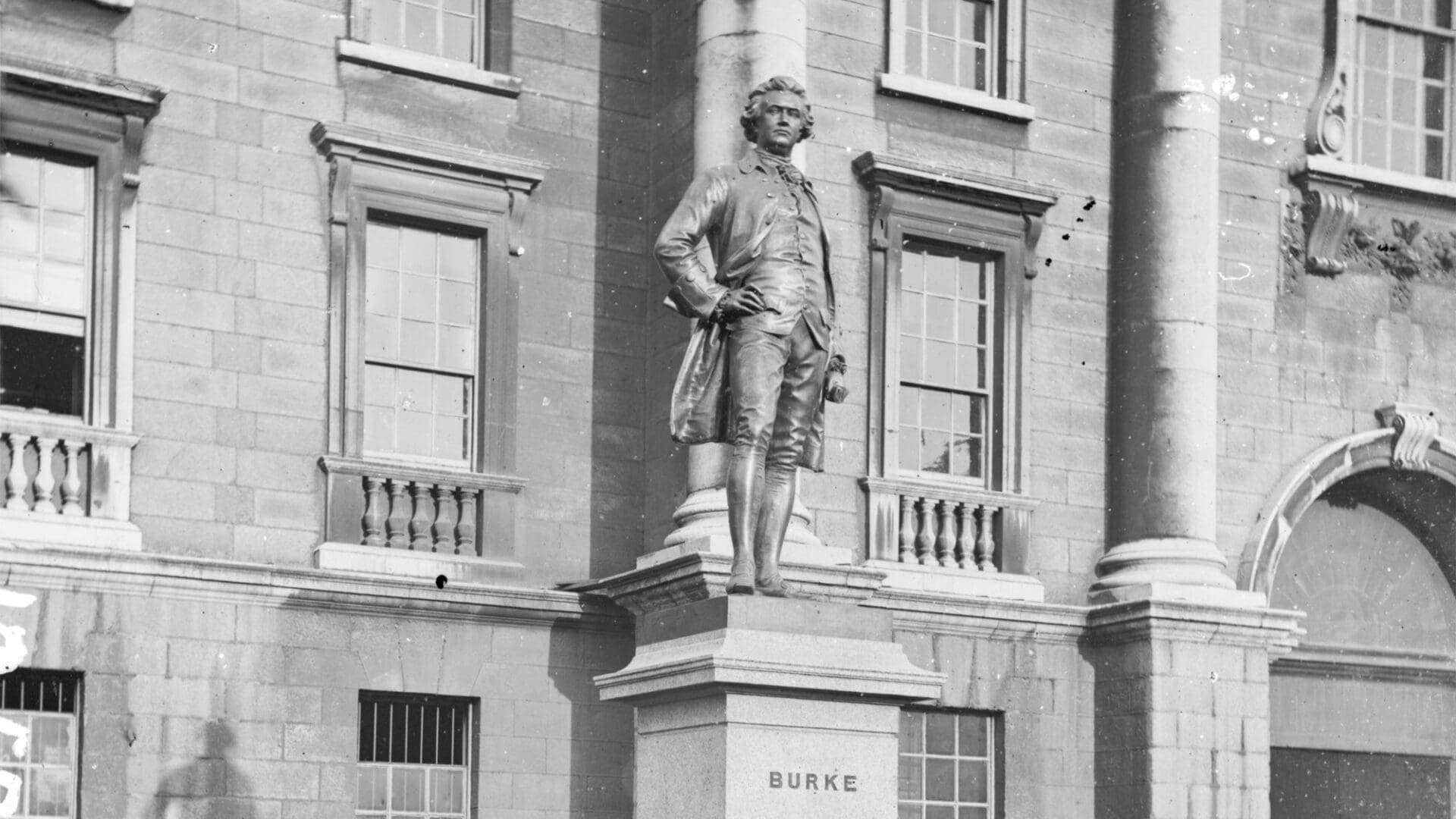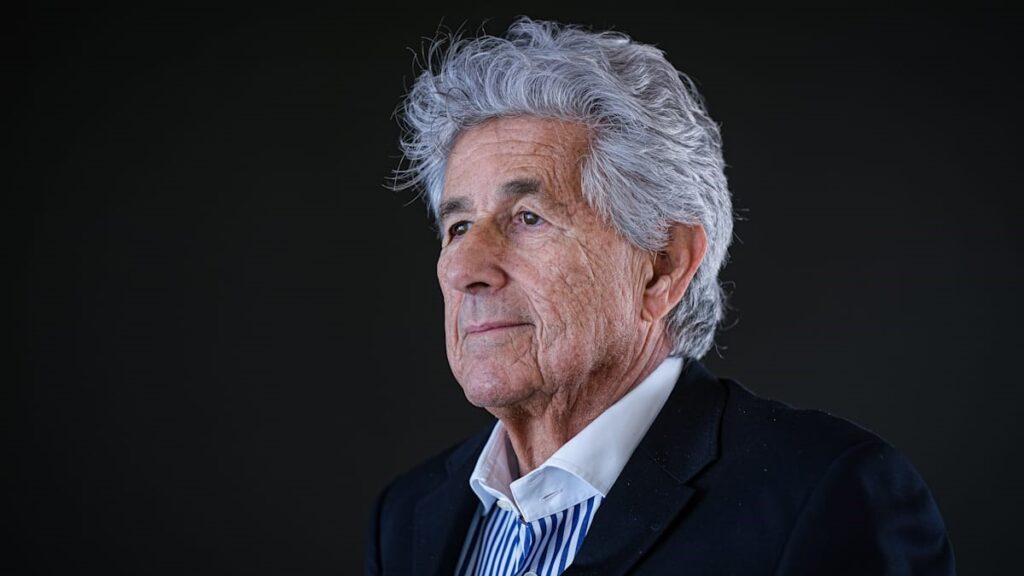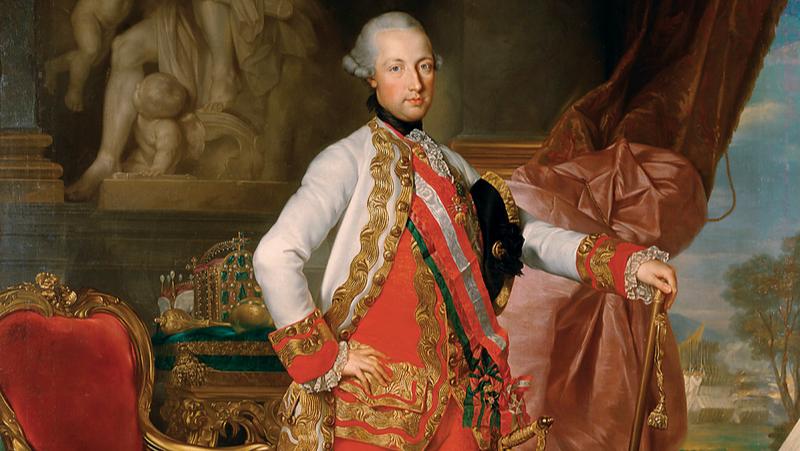Hungarian Conservative devotes significant attention to the philosophical exploration of conservative thought. Earlier pieces published on our website explored the legacy of Sir Roger Scruton, as well as that of Joseph de Maistre, while some other works introduced lesser known but nevertheless classic authors, such as science-fiction writer and philosopher Stanisław Lem. Our magazine has also looked at Hungarian conservatism, arguing that it has had an ideational competitive advantage that is applicable even today.
However, it would be wrong to overlook the text that forms the foundation of a vast array, if not all, thinking within the conservative tradition. In order to fully grasp the principles of conservatism, it is essential to study the ideas put forth by Edmund Burke in his work titled the Reflections on the Revolution in France. Examining this influential piece can help uncover key concepts that underpin conservatism as a whole, since Burke and his ideas arguably mark the beginning of conservative movements and thinking as such.
Burke’s Reflections do not have a certain theory of politics or basic principle underlying it—unlike, for instance, what the concept of equality means for left-wing movements, or the principle of non-aggression for libertarianism. Rather, Burke’s work, in a sense, is the complete opposite, an anti-theory. The conservative classic claims that
society and politics are just too complicated, and therefore, knowledge about human affairs cannot be taught in advance:
‘The science of constructing a commonwealth, or renovating it, or reforming it, is, like every other experimental science, not to be taught a priori. Nor is it a short experience that can instruct us in that practical science, because the real effects of moral causes are not always immediate; but that which in the first instance is prejudicial may be excellent in its remoter operation, and its excellence may arise even from the ill effects it produces in the beginning. The reverse also happens: and very plausible schemes, with very pleasing commencements, have often shameful and lamentable conclusions.’
The profound scepticism towards formalized knowledge and theory that Burke formulated in the above citation reappears in the works of latter authors, too. It perfectly resonates with thoughts of other thinkers, such as Polanyi’s concept of the tacit type of knowledge, or Scruton’s notion of defining an intellectual conservative as a person who articulates ‘reasons for not having reasons’. Polanyi’s concept is particularly powerful as the notion of tacit knowledge emphasizes that alongside explicit knowledge, there exists a vast realm of knowledge that humans are unable to articulate in words. This encompasses skills such as language proficiency, ability to utilize specific tools, and the execution of activities like running or dancing. Burke’s assertions in this context are remarkably radical, suggesting that the ‘science of constructing a commonwealth’ (i.e., the art of politics) is fundamentally rooted in tacit knowledge (even though Burke did not use this 20th century terminology). He says:
‘The science of government being therefore so practical in itself and intended for such practical purposes—a matter which requires experience, and even more experience than any person can gain in his whole life’.
In the framework of Burke’s thought, life is fundamentally mysterious, while human perception is incredibly limited. That explains why even if some traditions, practices or habits might seem unjust, irrational or obscure, one needs to be incredibly cautious before trying to reform or abolish them. Given that those traditions have survived so far, there is a chance that they serve some purpose; they might even be crucial for the survival of the entire society:
‘…it is with infinite caution that any man ought to venture upon pulling down an edifice which has answered in any tolerable degree for ages the common purposes of society, or on building it up again without having models and patterns of approved utility before his eyes.’
Again, this line of argumentation is still an integral part of most modern conservative writing. The reiteration of this thought can be found in several later works, such as the aforementioned Roger Scruton or in Lem, when he talks about values as instruments of achieving societal balance, or homeostasis.
Some scholars agree that it is important to point out that the Burkean framework is not reactionary—or, in other words, it is not opposed to the process of change as such. Rather, in the words of Sir Robert Peel,
the Reflections embodies the notion of ‘changing what you have to in order to conserve what you can’.
Burke also discusses the notion of rights in his book. However, unlike other Enlightenment thinkers, such as John Locke, Burke does not offer a rational justification for rights. According to him, rights are simply inherited, without any explicit reasoning behind their existence. As he puts it,
‘You will observe that from Magna Charta to the Declaration of Right it has been the uniform policy of our constitution to claim and assert our liberties as an entailed inheritance derived to us from our forefathers, and to be transmitted to our posterity—as an estate specially belonging to the people of this kingdom, without any reference whatever to any other more general or prior right. By this means our constitution preserves a unity in so great a diversity of its parts. We have an inheritable crown, an inheritable peerage, and a House of Commons and a people inheriting privileges, franchises, and liberties from a long line of ancestors’.
Moreover, Burke emphasizes that these rights are not absolute, nor do they exist in conjunction with corresponding obligations. He argues that these rights are bestowed by the government and its institutions, leaving no alternative source from which individuals can derive their rights.
In other words, individuals’ rights are determined solely by the societal framework and the country they are born into.
Additionally, Burke highlights that there is no universal guideline dictating the precise balance between rights and obligations, as the dynamic between the two varies depending on the specific circumstances and contexts–this thought demonstrates the internal consistency of his work as he rejects adhering to any certain underlying principle of politics.
Among the crucially important ideas within Burke’s framework is his stance on the concept of the social contract, which was widely discussed during the Enlightenment period in which he lived. Unlike other thinkers who entertained the possibility of either abolishing or renegotiating the social contract, Burke postulates its indestructibility: the current generation is not the only one who decides, as it bears responsibility towards future and former generations, with whom the present generation is bound by blood and a shared history:
‘As the ends of such a partnership cannot be obtained in many generations, it becomes a partnership not only between those who are living, but between those who are living, those who are dead, and those who are to be born.’
In the era in which Burke lived, determining the validity of his ideas was a formidable task—the repercussions of the French Revolution were still unfolding, and the turbulence of the 20th century social upheavals were yet to come. However, with the benefit of hindsight, it becomes evident that Burke’s work and ideas demonstrated a remarkable prescience. After the destruction brought by the regimes that were built on abstract theories,
understanding the necessity of basing societies on naturally arising order with respect to countries’ individual history
and their unique experience form the ‘cautious way’ of building political entities as proclaimed by the philosophy of Burke. With the rise of new radical theories aiming to reshape our societies, the importance of the ideas stated in the Reflections on the Revolution in France is hard to overestimate.








